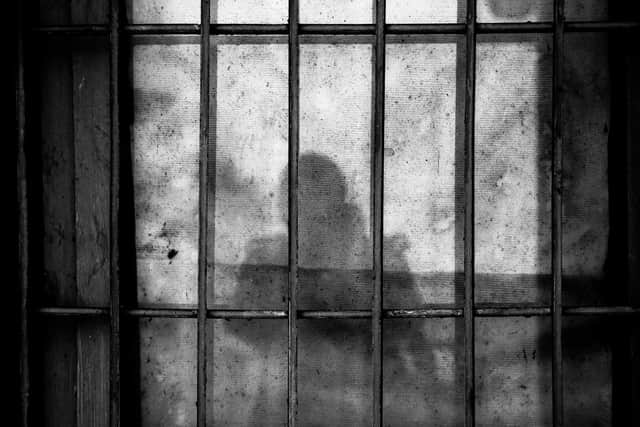What is an IPP prisoner? - Imprisonment for public protection sentence explained
This article contains affiliate links. We may earn a small commission on items purchased through this article, but that does not affect our editorial judgement.
and live on Freeview channel 276
Imprisonment for public protection (IPP) sentencing is a special kind of prison sentence that courts in England and Wales used to keep serious offenders in custody for as long as they presented a risk to society. However, it was scrapped after just seven years with many fearing the law was being applied too broadly.
Despite IPP sentencing being abolished in 2012, the change failed to retrospectively assess the status of those imprisoned under the law. According to Sky News, this means there are potentially thousands of prisoners still incarcerated for minor crimes such as stealing a mobile phone.
Advertisement
Hide AdAdvertisement
Hide AdBut what exactly is an IPP sentence, how does it end, and what is the government’s stance? Here’s everything you need to know.
What is an IPP sentence?
According to a House of Commmons briefing, unlike fixed-term sentences IPP sentences are indeterminate and considered as ‘open-ended’. Court impose a minimum term, sometimes called a ‘tariff’, that must be served in custody, before a prisoner can be considered for parole.
How does an IPP sentence end?
The Parole Board decides when a prisoner is no longer considered a risk meaning offenders can remain incarcerated indefinitely if they aren’t granted parole. If a prisoner is granted parole, their release will be subject to conditions and if they breach the conditions within the first 10 years of being released, the person may be recalled to prison.
How many IPP prisoners are there?
The latest data taken by the Ministry of Justice at the end 2022 revealed there are 2,892 IPP prisoners in total with all but 35 unreleased IPP prisoners having served their minimum term and eligible for parole.
What are the problems with IPP sentences?
Advertisement
Hide AdAdvertisement
Hide AdAccording to written evidence given by Prison Reform Trust (PRT) at a select committee, many prisoners eligible for parole are kept in ‘limbo’ due to high numbers of deferrals and adjournments from the Parole Board. A Parole Board initiative established in 2017, found that the underlying causes for delay pertained to ‘missing reports or the need for additional reports’.


PRT has also argued the low rate at which IPP prisoners are being released can be attributed to a lack of opportunities to progress and demonstrate reduced risk to the Parole Board.
Another problem of IPP sentencing are the mental health challenges presented by having an indeterminate sentence. PRT data shows people given IPPs are disproportionately likely to have pre‐existing mental health problems and the indertimancy of imprisonment can exacerbate prisoners feeling ‘hopeless and helpless.’
Meanwhile, prisoners who have already served their minimum term and waiting for parole are likely to feel ‘disenfranchised, frustrated and distressed’ which may limit progress towards release. IPP prisoners also demonstrate a higher risk of self harm, over twice that of people serving life, according to PRT data.
What has the government said about the IPP sentence?
Advertisement
Hide AdAdvertisement
Hide AdIn September 2022, The House of Commons Justice Committee sent a report to the government detailing a number of recommendations. In February 2023, the government accepted the need to update its IPP Action Plan which it said is the ‘best option’ for prisoners to ‘progress toward a safe release’.
However, the government rejected the committee’s primary recommendation of conducting a resentencing exercise.
Dominic Raab, the then secretary of state for justice, said in response: “Retrospective resentencing of IPP offenders could lead to the immediate release of many offenders who have been assessed as unsafe for release by the Parole Board, many with no period of supervision in the community.
“The government’s long-held view is that this would give rise to an unacceptable risk to public protection and that the IPP action plan, suitably updated, remains the best option by which these offenders can progress towards safe release. As such, the government has no plans to conduct a resentencing exercise.”
Advertisement
Hide AdAdvertisement
Hide AdThe Justice Committee expressed regret that the government had rejected its recommendation on resentencing. The chair of the committee, Bob Neill said the response was “a missed opportunity to right a wrong”. The decision was also criticised by campaigning organisations such as PRT.
